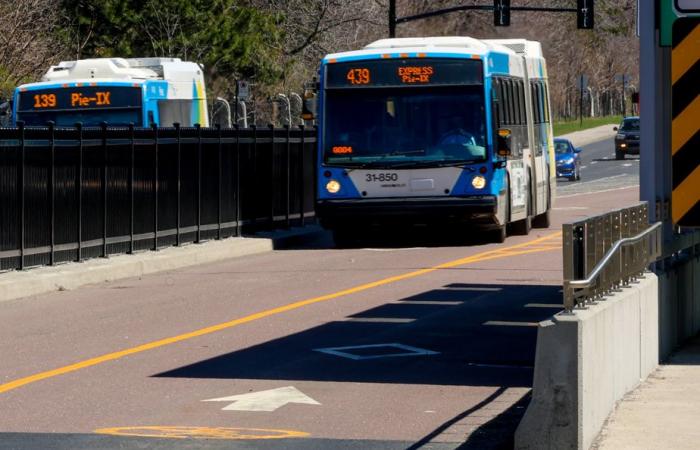(Quebec) Quebec will pay approximately $870 million to public transit companies to cover part of their anticipated shortfall from 2025 to 2028, we learned The Press.
Published at 5:00 a.m.
This highly anticipated financing plan is part of the economic update that Finance Minister Eric Girard will present on Thursday. We should not expect fireworks of announcements in this era of budgetary restrictions: the government has forecast in its budget a deficit of 11 billion dollars for the current year, a record in absolute figures.
The aid of $870 million over four years does not completely meet the demands of transport companies, which are in the process of revising their financial forecasts. In March, they estimated their expected shortfall for 2025 alone at 600 million; However, cities have since committed to increasing their own contributions.
The 870 million would be used mainly to maintain the level of services or to avoid cuts. However, cities have long campaigned for government assistance in order to increase the supply of services.
However, the announcement will finally give transport companies predictability regarding the government’s contribution to financing their operations.
Towards the end of the war of numbers?
Since the drop in ridership caused by the pandemic, which caused the fare revenues of transport companies to drop, Quebec and the cities negotiated the amount of the government contribution each year, which gave rise to a war of numbers. In 2024, Quebec had paid 265 million to transport companies, which represented 70% of their “cyclical” deficit.
Note that the jackpot of 870 million includes the 200 million already announced for 2025 for the transport companies of Greater Montreal.
Quebec’s financing plan is unveiled two weeks after the submission of the performance audit of transport companies by the Minister of Transport, Geneviève Guilbault.
The report from the firm Raymond Chabot Grant Thornton concludes that transport companies could reduce their expenses by 350 million. Experts suggest, for example, subcontracting driver services, modifying clauses in collective agreements, reducing the number of buses in preventive maintenance or in reserve and grouping certain services between transport companies.






